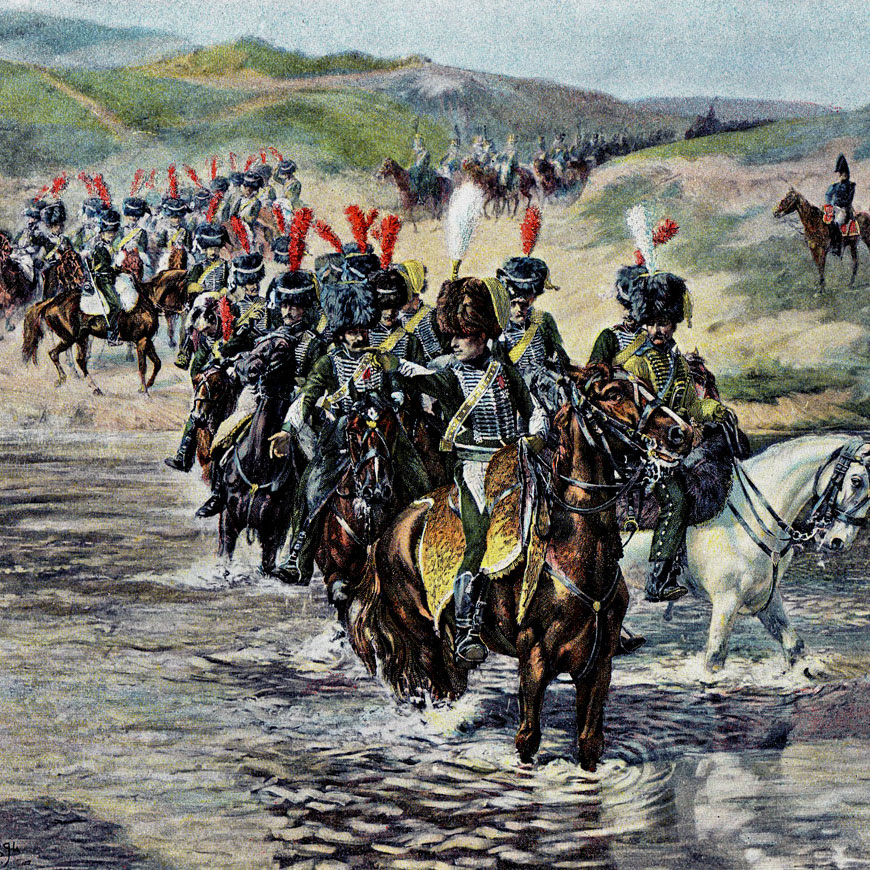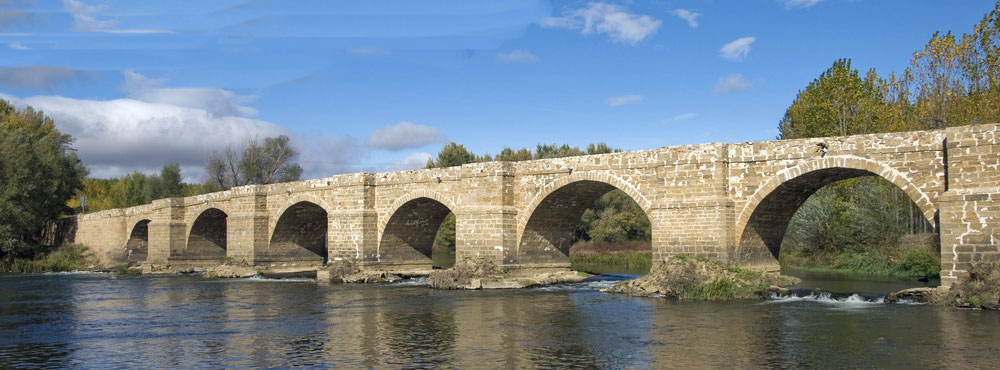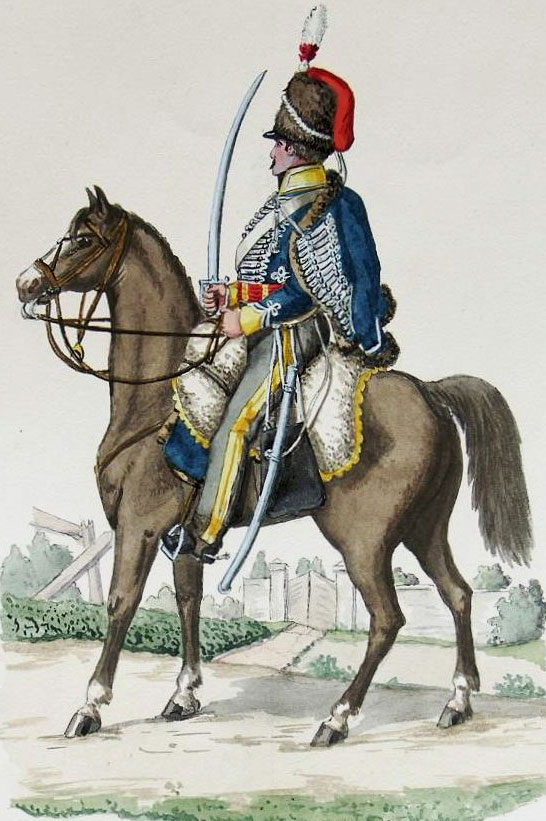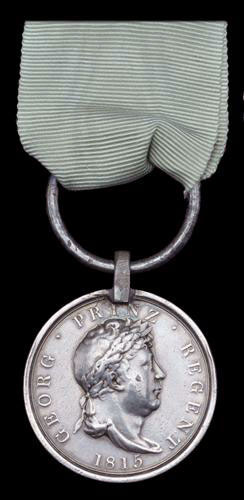The second cavalry battle, fought on 29th December 1808, establishing the early predominance of British cavalry over French in the Peninsular War
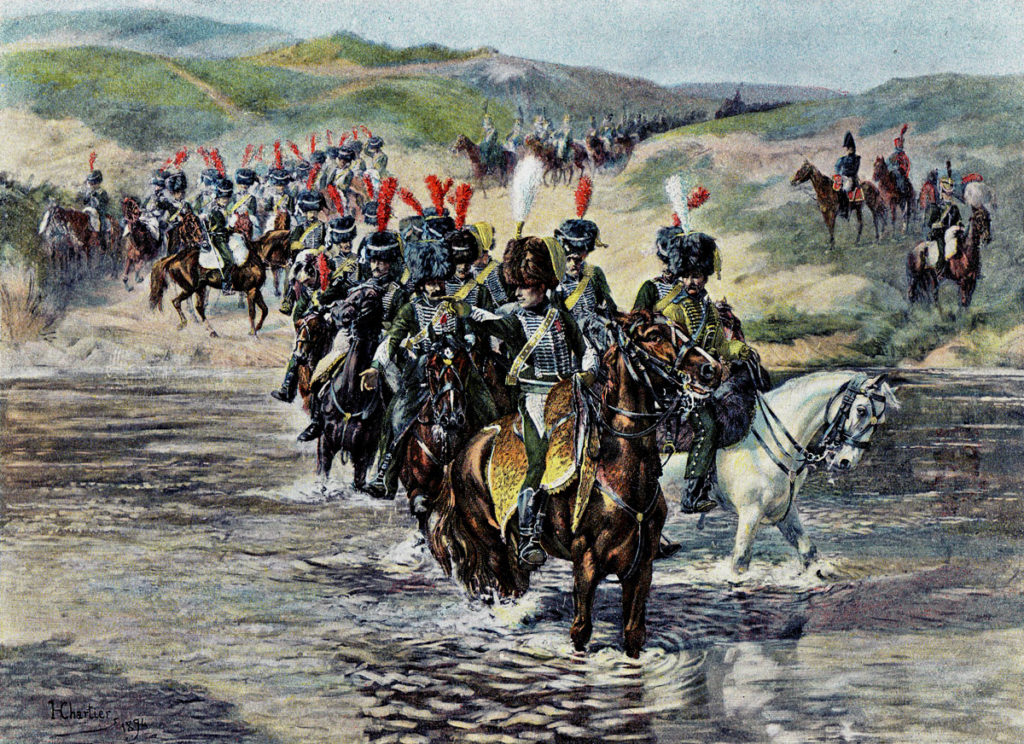
Podcast of The Battle of Benavente: The second cavalry battle, fought on 29th December 1808, establishing the early predominance of British cavalry over French in the Peninsular War: John Mackenzie’s Britishbattles.com podcast.
The previous battle of the Peninsular War is the Battle of Sahagun
The next battle of the Peninsular War is the Battle of Cacabelos
War: Peninsular War
Date of the Battle of Benavente: 29th December 1808
Place of the Battle of Benavente: North-western Spain.
Combatants at the Battle of Benavente: The British against the French.
Commanders at the Battle of Benavente: Major-General Lord Henry Paget commanded the British cavalry division under the command of Lieutenant General Sir John Moore.
General Lefebvre-Desnouettes led the French Imperial Guard Cavalry under the command of the Emperor Napoleon.
Size of the armies at the Battle of Benavente:
The British cavalry division numbered around 2,000 men, not all of whom were in action in the battle.
The 4 squadrons taken by Lefebvre-Desnouettes across the River Esla at Castro-Gonzalo numbered around 650 men.
Winner of the Battle of Benavente:
The British and King’s German Legion cavalry drove the French cavalry back across the River Esla, capturing their commander, a general in the Imperial Guard.
Background to the Battle of Benavente:
At the end of December 1808, Moore’s British army was in the area north-west of Valladolid, advancing to relieve the Spanish garrison in Madrid, when Moore received a series of reports that revealed he was facing a French army led by the Emperor Napoleon of around 250,000 men, with his own army standing at 40,000 men.
Moore immediately began the arrangements for an urgent retreat to the port of Corunna in the north-west of Spain, to save his army.
The Emperor Napoleon was conducting a grand review of his troops in Madrid on 19th December 1808, when he heard of Moore’s advance.
Napoleon abandoned the review, despatched orders to his commanders across the north-west of Spain, before advancing over the Guardarrama Mountains to give battle to Moore and dispose of Britain’s only army, thereby ending Britain’s involvement in the war.
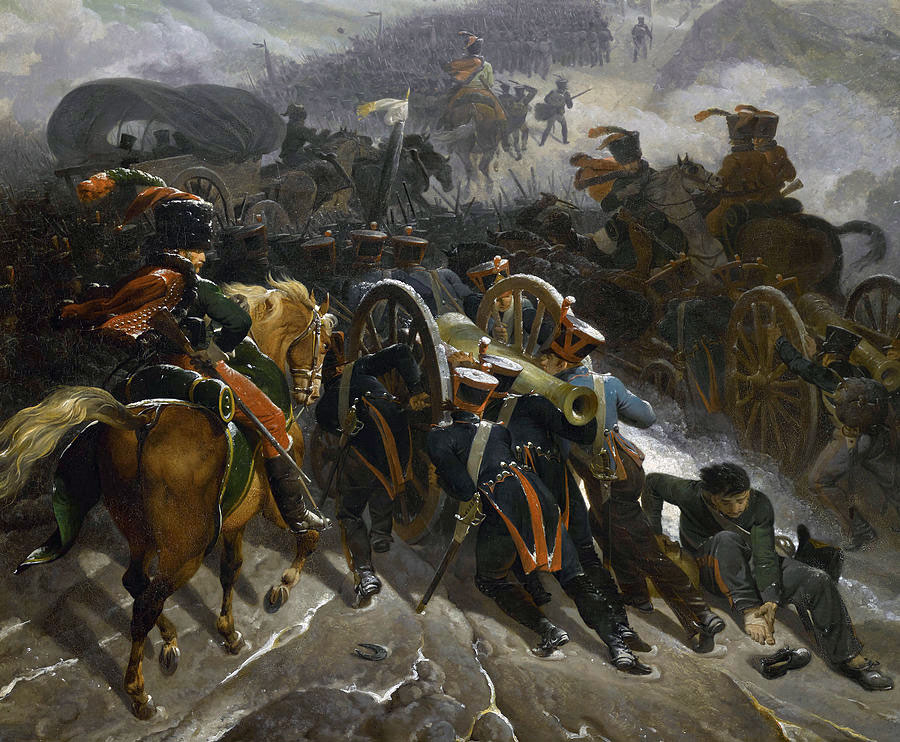
There were three days of snowstorms in the Guardarramas causing considerable difficulties for the French troops crossing the mountains.
Information confirmed to Napoleon that Moore was proposing to retreat on Corunna, but for the moment was still at Valladolid.
Marshal Ney reached Medina del Campo on 23rd December 1808, with Napoleon and the Imperial Guard following closely behind.
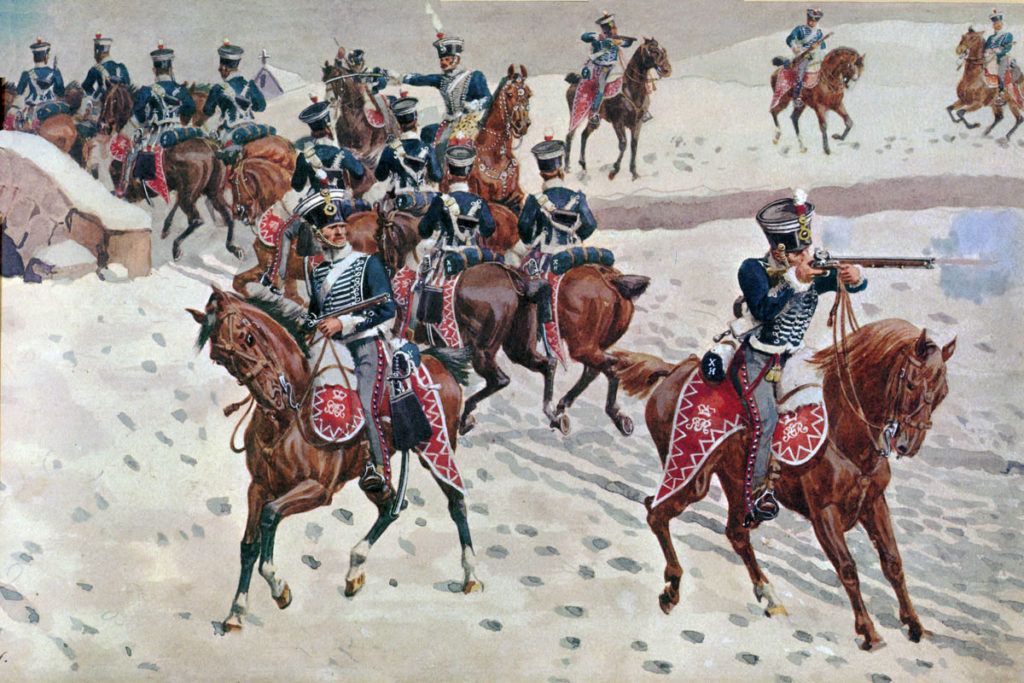
Napoleon deduced that if he captured the bridge over the River Esla at Castro-Gonzalo, 3 miles to the south of Benavente, he would have intercepted Moore’s route to the Spanish north-west and the British fleet at Corunna.
In fact, Moore had not marched as far south-east as Valladolid and 2 of his infantry divisions were already taking the route south-west along the River Esla to cross at Castro-Gonzalo and turn onto the north-west road towards Astorga and finally Corunna.
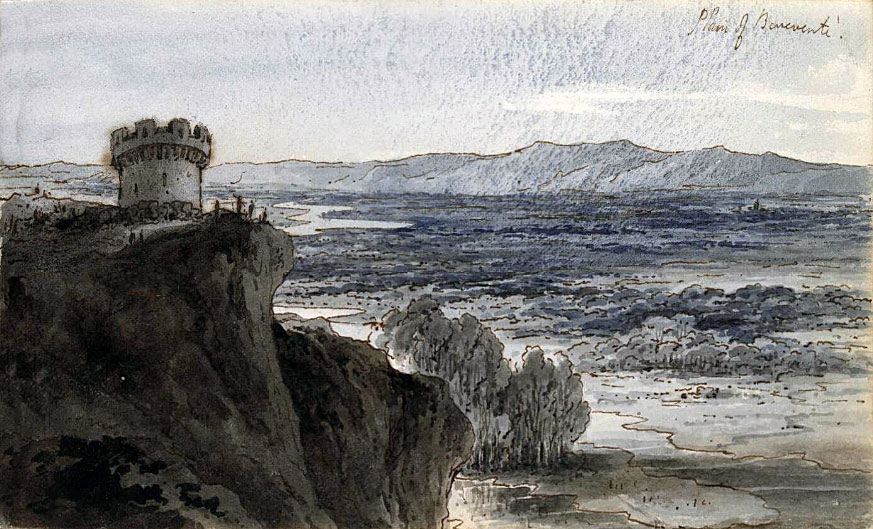
Soult was convinced that the British army was in front of him along the line of the River Carrion and urged Napoleon to attack and move Ney’s Corps forward to Benavente to cut off the British retreat.
Further news reached Napoleon from Ney, that a British force had been seen at Villada, south-east of the River Esla and another at Mansilla to the north-west of Villada.
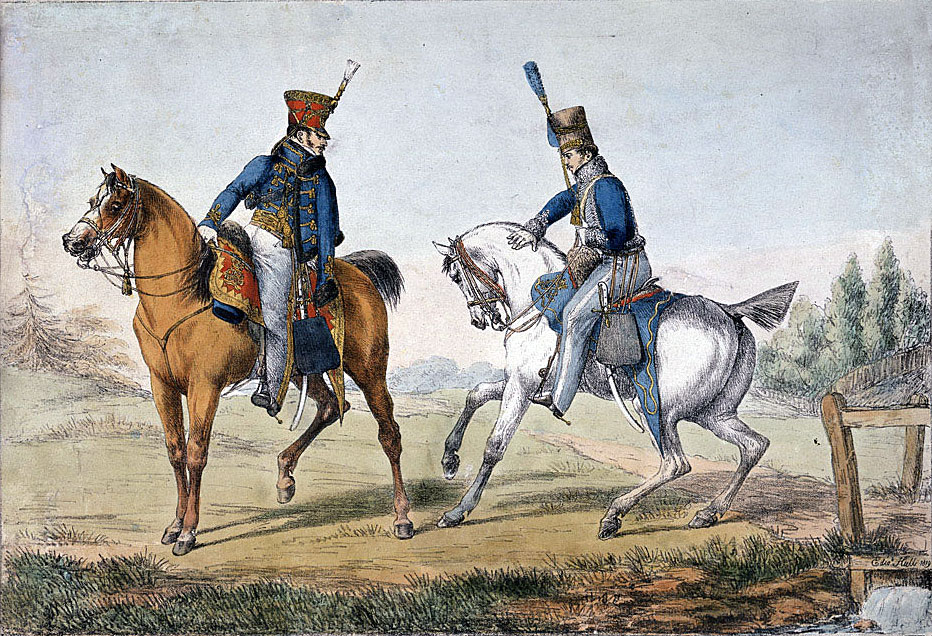
Napoleon cancelled a day of rest for the army, after the gruelling crossing of the Guardarrama Mountains, set for the 26th December 1808 and ordered a concentration at Medina de Rio Seco, 20 miles north-west of Valladolid.
On the same day a clash took place between French cavalry and the British 15th Hussars and the 3rd Hussars of the King’s German Legion.
Napoleon concluded that Moore’s army was still in position in the Sahagun area. He moved his headquarters to Medina de Rio Seco and ordered Ney’s Corps forward to attack towards Valderas and Mayorga.
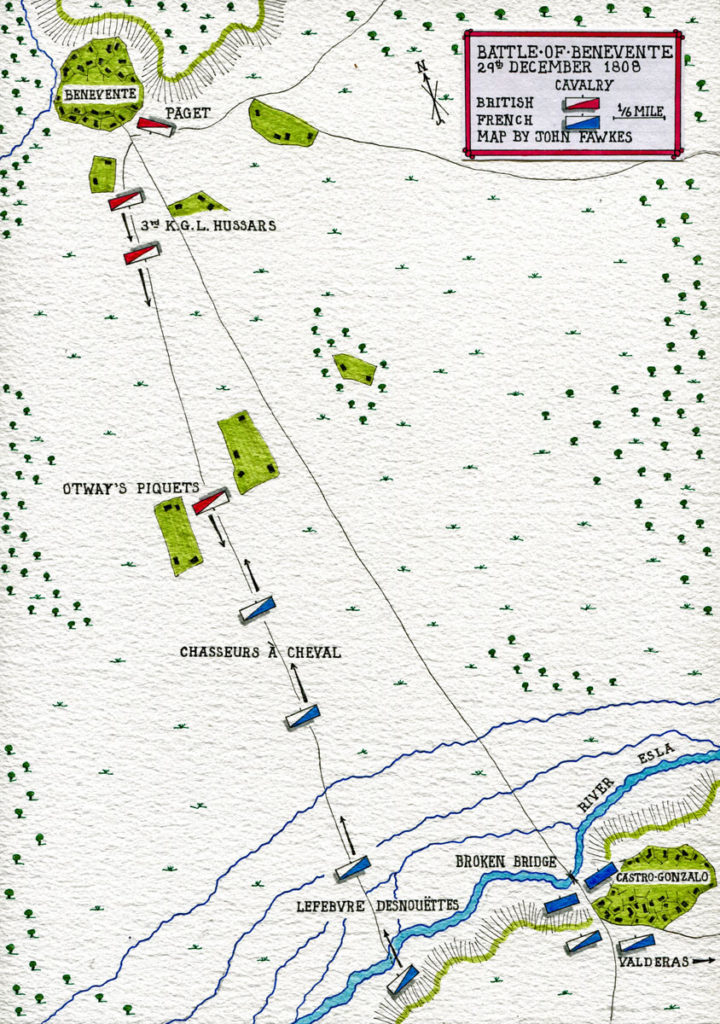
Battle of Benavente:
On 26th December 1808, clashes took place around Mayorga between French and British light cavalry (10th and 15th Hussars and 3rd KGL Hussars), the British pre-dominating, in spite of being outnumbered, taking over 100 French prisoners.
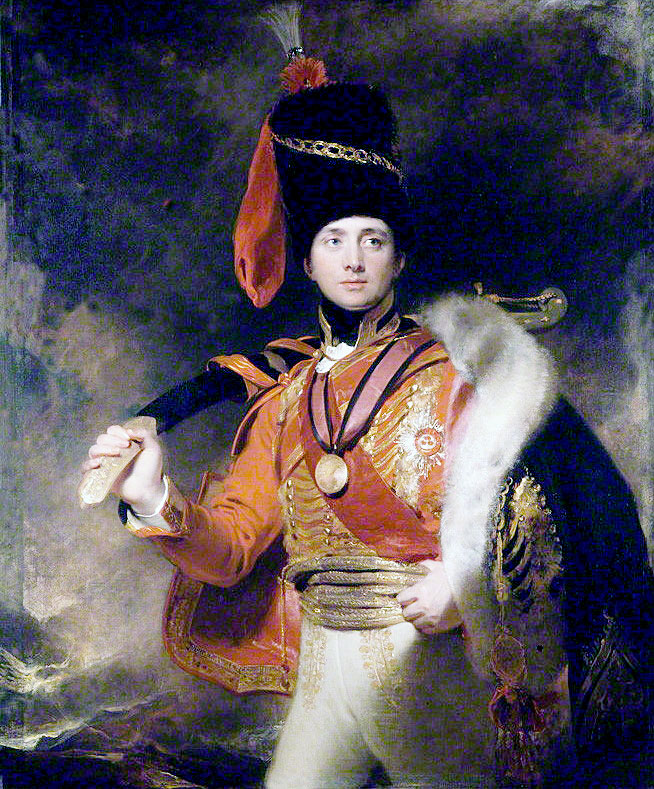
The next day, Lord Paget’s Cavalry Division marched to the crossing of the River Esla at Castro-Gonzalo, 5 miles south of Benavente, pursued closely by Soult’s cavalry, that the British held in check with a number of what Fortescue calls ‘brilliant little attacks’.
During the evening of 27th December 1808, 4 of Paget’s regiments were across the bridge at Castro-Gonzalo, that the infantry of General Craufurd’s Brigade was demolishing by hacking down the substantial medieval masonry.
On 28th December 1808, Bessières came up with the whole of the Cavalry of the Imperial Guard, but no attempt was made to interfere with the British demolition work on the bridge.
In the evening, General Lefebvre-Desnoëttes led a dismounted attack on the bridge that failed.
Napoleon still hoped to envelope Moore’s army and ordered his troops to cross the River Esla as quickly as possible by whatever means.
Paget’s last regiment, the 3rd Hussars of the King’s German Legion, crossed the bridge and the remains of the bridge span were blown up.
The weather had been bad with persistent heavy rain and the river was flowing fast and high, washing out the fords.
It seemed to the French that Moore’s army had continued its retreat, as no British troops could be seen in Benavente.
Lefebvre-Desnoëttes found a suitable place to pass the river, effectively swimming the horses, as the water was too deep to ford and crossed over with 3 squadrons of his own regiment, the Chasseurs à Cheval of the Imperial Guard and a squadron of Mamelukes and Light Horse of the Imperial Guard.
In fact, Paget’s Cavalry Division was still in Benavente and a number of piquets were spread along the river bank.
On hearing of the French crossing, Colonel Otway, commanding the piquets, called them in.
On hearing of the French crossing, Colonel Otway of the 18th Hussars, commanding the piquets, called them in.
Approaching the town, Otway halted the piquets on the road in a position where garden walls on each side of the road protected his flanks.
Otway was here joined by the inlying piquets of the 7th, 10th and 18th Hussars.
Otway, now having 150 men, saw that he had more men than the isolated squadron of Chasseurs à Cheval, which had halted in front of him.
Otway charged and the French squadron, receiving the charge at the halt, was completely broken, their commander being killed.
The French second squadron came up and, galloping into the combat, reversed the situation, Otway’s men suffering considerable loss and being driven back.
3 troops of the 3rd KGL Hussars joined the fight and redressed the balance, the 2 French squadrons falling back to reform.
Lord Paget and General Stewart arrived on the scene, Paget returning to Benavente, to bring up the rest of the 10th Hussars, while Stewart took over command from Otway.
Stewart charged the 2 squadrons of Chasseurs à Cheval, which again received the charge at the halt.
This charge was not so decisive and the combat broke up into a number of individual sword fights.
Lefebvre-Desnoëttes came up with the third squadron of Chasseurs à Cheval, making a total French force of 500 men and charged into the melee taking the British light cavalry in the flank.
Stewart’s men were forced back towards the town, until the rest of the 3rd KGL Hussars came up and restored parity in numbers.
Paget now arrived with the 10th Hussars and delivered a surprise attack on the flank of the French force, as they advanced.
Many of the soldiers of the other British regiments, the 7th, 15th and 18th Hussars, took part in this attack.
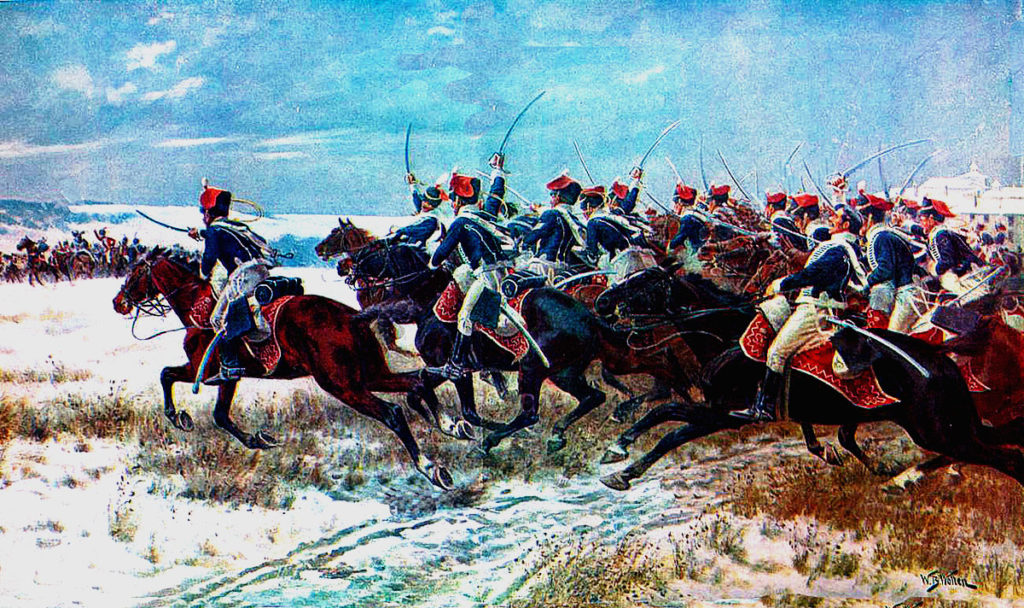
Podcast of The Battle of Benavente: The second cavalry battle, fought on 29th December 1808, establishing the early predominance of British cavalry over French in the Peninsular War: John Mackenzie’s Britishbattles.com podcast.
The French cavalry turned and rushed back to the river, in considerable confusion, with individual troopers pursued by British and German cavalrymen, in what Fortescue describes as a ‘race for the river.’
At the river bank, the French crowded into the water, many being lost in the fast-flowing current.
Those left behind were cut down or captured.
Once across the river, the Chasseurs à Cheval dismounted and opened carbine fire on the British light cavalry on the far bank, until 2 British horse artillery guns came up and put a number of rounds of grape shot into the French cavalrymen, finally dispersing them.
One of the last Frenchmen to reach the river was General Lefebvre-Desnoëttes, who was captured in circumstances of some controversy.
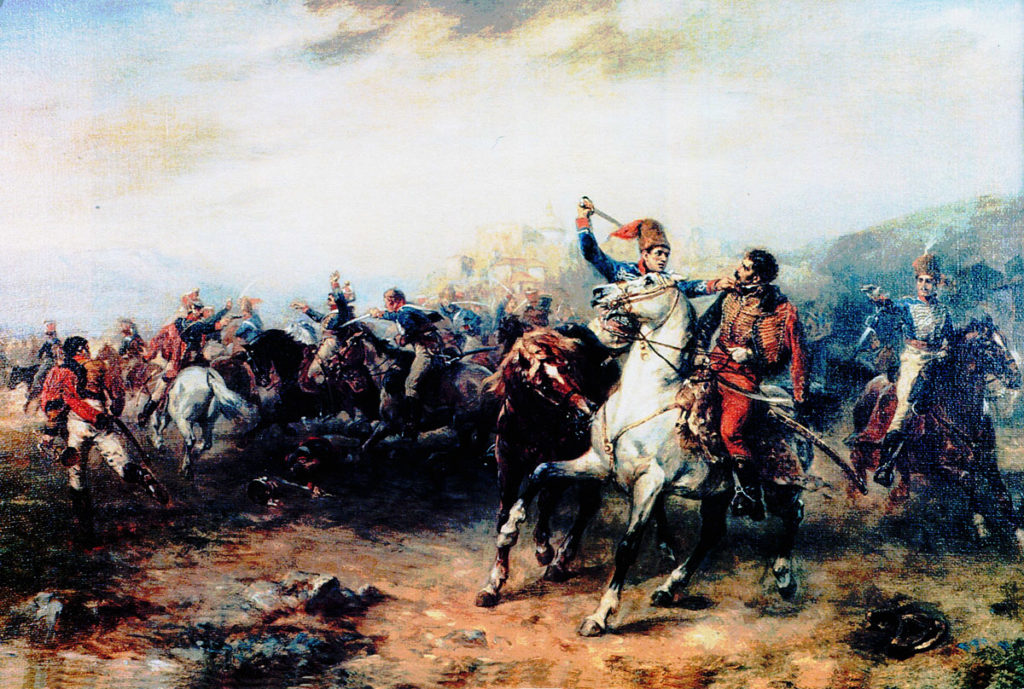
Who captured General Lefebvre-Desnouettes?
It is the tradition of the 10th Royal Hussars that General Lefebvre-Desnoëttes was wounded and captured at the Battle of Benavente by their trooper, Levi Grisdall.
Beamish in his history of the King’s German Legion provides a different account.
Beamish describes the pursuit of the French Chasseurs à Cheval by the 3rd Hussars of the King’s German Legion. An 18-year-old soldier, Bergman, riding a ‘fast English horse’, caught up with a gentleman wearing a green frock and cocked hat, General Lefebvre-Desnoëttes. The general thrust at Bergman who parried the blow. Lefebvre-Desnouettes then surrendered. An English cavalryman rode up and seized the general’s bridle, while Bergman rode on in pursuit of the main body of French cavalry.
The English cavalryman, Levi Grisdall, took Lefebvre-Desnoëttes to General Stewart, his brigade commander and was lauded as the captor of the general, receiving promotion to sergeant.
Another British soldier, Corporal Lomax of the 7th Hussars, wrote of the capture of General Lefebvre-Desnoëttes in a letter dated 6th February 1809, sent to his sister: ‘… I was well satisfied for we took the commanding officer, General Lefevre. I made a cut at him, but he would not give himself up; he got wounded in the back of the neck; he soon gave up his sword, and I caught his bridle reins and dismounted him….’ (United Services Magazine 1831).
There seems no indication that Corporal Lomax made a formal claim to the army authorities for acknowledgement or any reason to disbelieve his account, given in private correspondence.
Bergman of the 3rd KGL Hussars petitioned to receive the Guelphic medal, a Hanoverian award, in 1828. An investigation was conducted in Osterholz by the Hanover military authorities and Bergman was awarded the medal as the captor of General Lefebvre-Desnoëttes.
Perhaps the answer is that a group of soldiers came upon Lefebvre-Desnoëttes at the same time and all can be considered to have taken a part in capturing the French general.
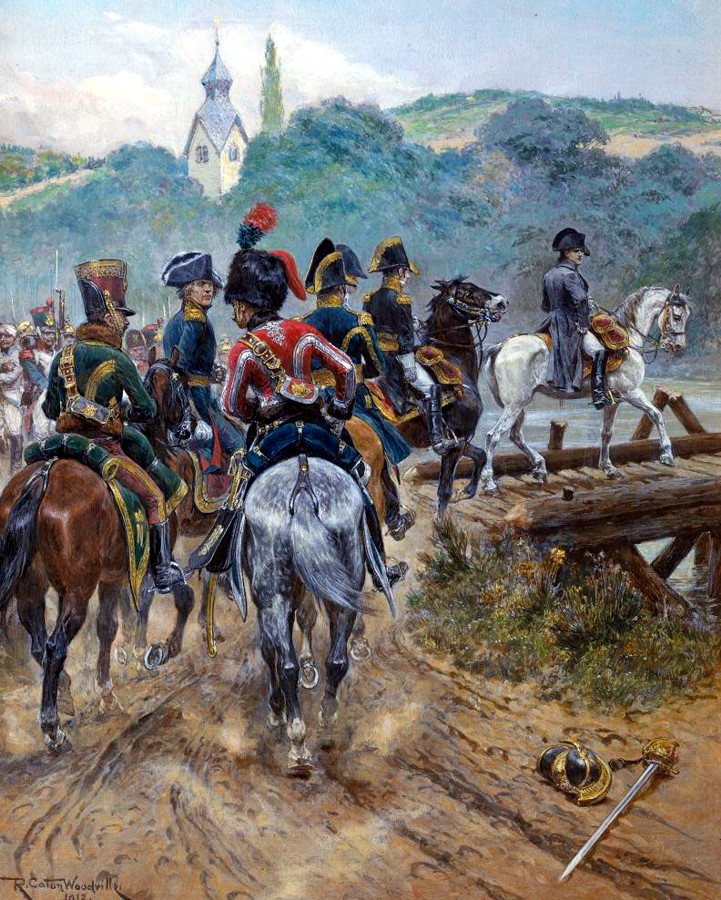
Emperor Napoleon in Spain: Battle of Benavente on 29th December 1808 in the Peninsular War: picture by Richard Caton Woodville
Casualties in the Battle of Benavente:
French casualties in the Battle of Benavente were 2 officers and 7 men killed with 7 officers and 91 men wounded and 3 officers and 42 men captured.
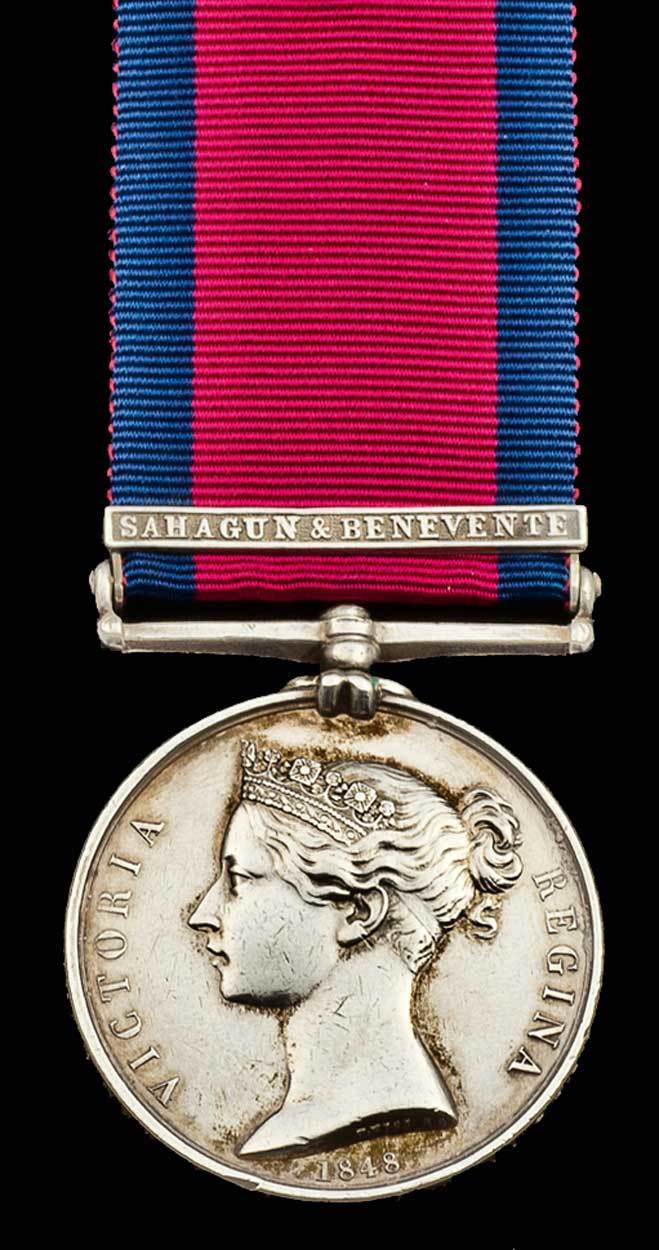
Military General Service Medal with clasp for Battles of Sahagun and Benavente, December 1808 in the Peninsular War
British casualties were 12 killed and around 70 wounded.
The 3rd KGL Hussars suffered 3 soldiers killed and 41 wounded, with 2 officers wounded.
Aftermath to the Battle of Benavente:
The French made no further attempt to cross the River Esla at Benavente.
However, at Mansilla, where Romana’s Spanish army was guarding the crossing point, Moore’s recommendation to destroy the bridge was not followed.
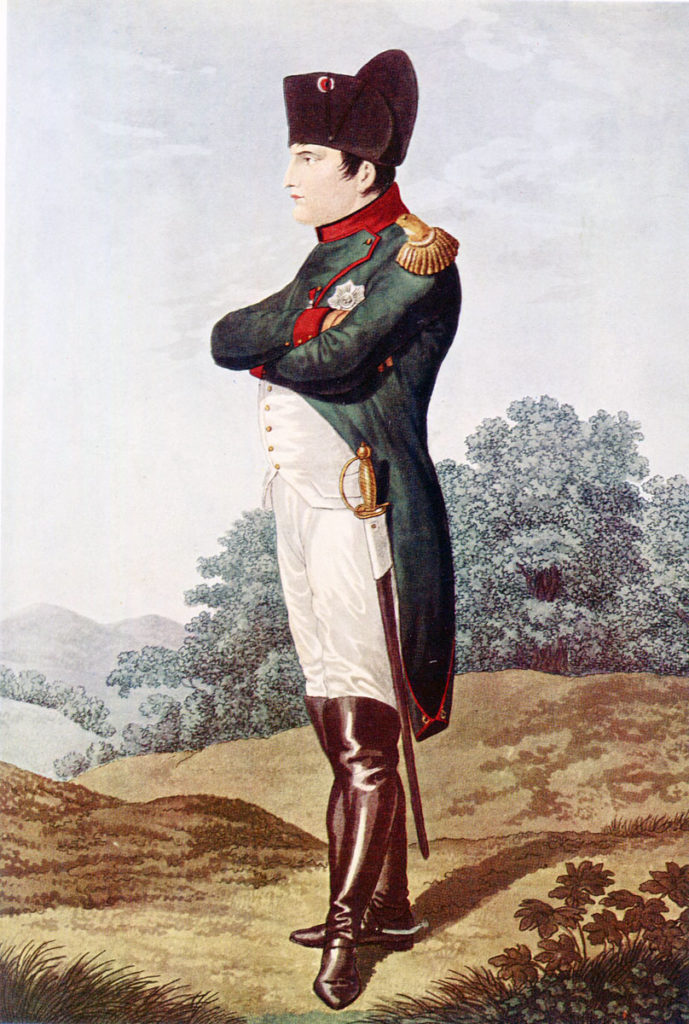
Franceschi’s French cavalry brigade charged across the bridge and in a second action routed the Spanish troops outside Mansilla, pursuing the survivors to the edges of Leon, 7 miles up the road.
Moore’s force remained for a day at Benavente, waiting for ammunition and supplies to come up, before continuing the retreat towards Corunna.
The Emperor Napoleon, after giving instructions on the pursuit of the British, left the command of the French army in north-western Spain to Marshal Soult and in early January 1809 returned to Paris to deal with an incipient conspiracy against him by Talleyrand and Fouché.
Battle Honours and Medal for the Battle of Benavente:
The Military General Service Medal 1848 was issued to all those serving in the British Army present at specified battles during the period 1793 to 1840 and who applied for the medal. The medal was only issued to those entitled to one of the clasps, 11 of which were for battles in the Peninsular War.
The Battle of Benevente (spelt wrong) was one of the clasps, either on its own or in combination with the Battle of Sahagun, where soldiers were present at both battles.
No regimental battle honour was awarded for the Battle of Benavente.
In 1810 a Gold Medal was issued to be awarded to officers of rank of major and above for meritorious service at certain battles in the Peninsular War, with clasps for additional battles. The ‘Large Gold Medal’ was awarded to generals, the ‘Small Gold Medal’ to majors and colonels, with the medal replaced by a cross where four clasps were earned. The Battle of Benavente was one of the battles, either alone or in combination with the Battle of Sahagun.
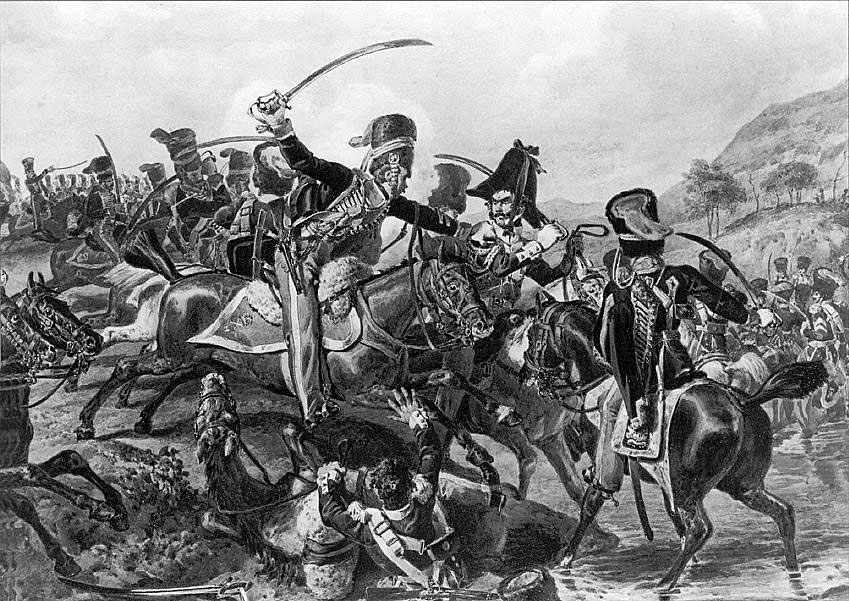
Anecdotes and traditions from the Battle of Benavente:
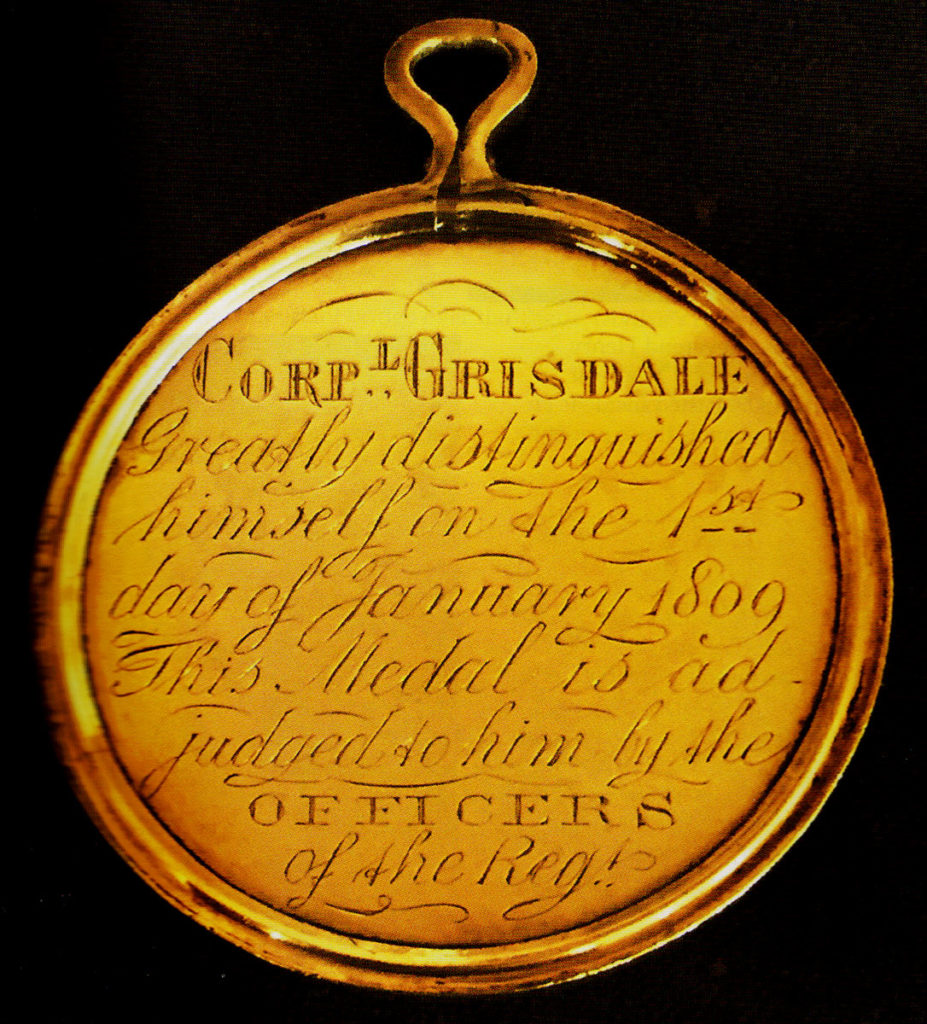
- It is reported that the French crossing of the Guardarrama Mountains before the Battle of Benavente was so difficult that an entire troop of cavalry was lost in a snow-filled crevasse.
- The battle was watched from the town walls by thousands of Benavente townspeople, shouting ‘Viva los Ingleses’.
- Beamish reports that the 3rd KGL Hussars used their broad British light cavalry swords to considerable effect, inflicting terrible injuries on the opposing Frenchmen.
- The 3rd KGL Hussars carried out many of the most arduous duties during the withdrawal to Benavente. The regiment was given the opportunity to stand down in Benavente. The commander, Major von Linsingen, foreseeing a possible French incursion across the river, refused to permit his men to unsaddle overnight, enabling the regiment to turn out at short notice and support Otway’s picquets.
- The Emperor Napoleon is said to have been distressed at the humiliation and loss to one of his favourite corps, the Chasseurs à Cheval of the Guard.
- British army rumour had it that the battle had been watched by the Emperor, but this was not so. He was at Valderas at the time.
- Once Moore’s army was evacuated to Britain from Corunna, the 3rd Hussars of the King’s German Legion did not return to the Peninsula, serving with British armies in Northern Europe.
- General Lefebvre-Desnoëttes was taken as a prisoner of war to England where he was released on parole to live in Cheltenham. Lefebvre-Desnoëttes broke his parole and escaped to France in 1811, causing outrage in Britain. After successful service in the Imperial Guard, Lefebvre-Desnoëttes, with the abdication of Napoleon in 1814, served under the restored Bourbon monarchy, but reverted to support for Napoleon in the 100 days, serving in the Imperial Guard at the Battle of Waterloo. After the battle and facing execution by the Bourbons, Lefebvre-Desnoëttes travelled to the United States of America, where he assisted in setting up the Aigleville colony of French Imperial veterans in Alabama. With the collapse of the colony, in 1822 Lefebvre-Desnoëttes returned to France, but was lost in the wreck of the ‘Albion’ off the coast of Ireland.
- Levi Grisdale fought on with the 10th Hussars in the Peninsular War and at the Battle of Waterloo, where he was wounded, reaching the rank of sergeant major. On leaving the army, Grisdale opened a pub in Penrith, Cumberland, named the ‘General Lefebvre’, which the locals called the ‘General Grisdale’, dying in 1855. On Grisdale’s return to England after Corunna, he was presented to the Prince Regent, who offered to pay for his education, an offer Grisdale refused, wishing to stay in the army. Grisdale was awarded a medal by the officers of the 10th Hussars for his feat in capturing General Lefebvre-Desnoëttes. The date for the battle is wrong on the medal.
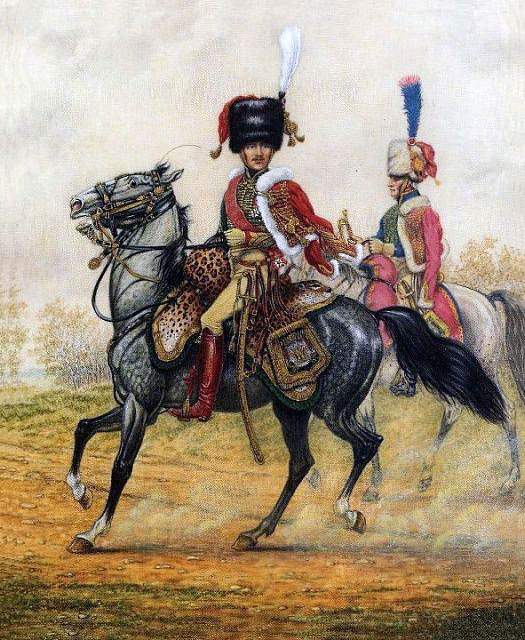
References for the Battle of Benavente:
See the extensive list of references given at the end of the Peninsular War Index.
The previous battle of the Peninsular War is the Battle of Sahagun
The next battle of the Peninsular War is the Battle of Cacabelos
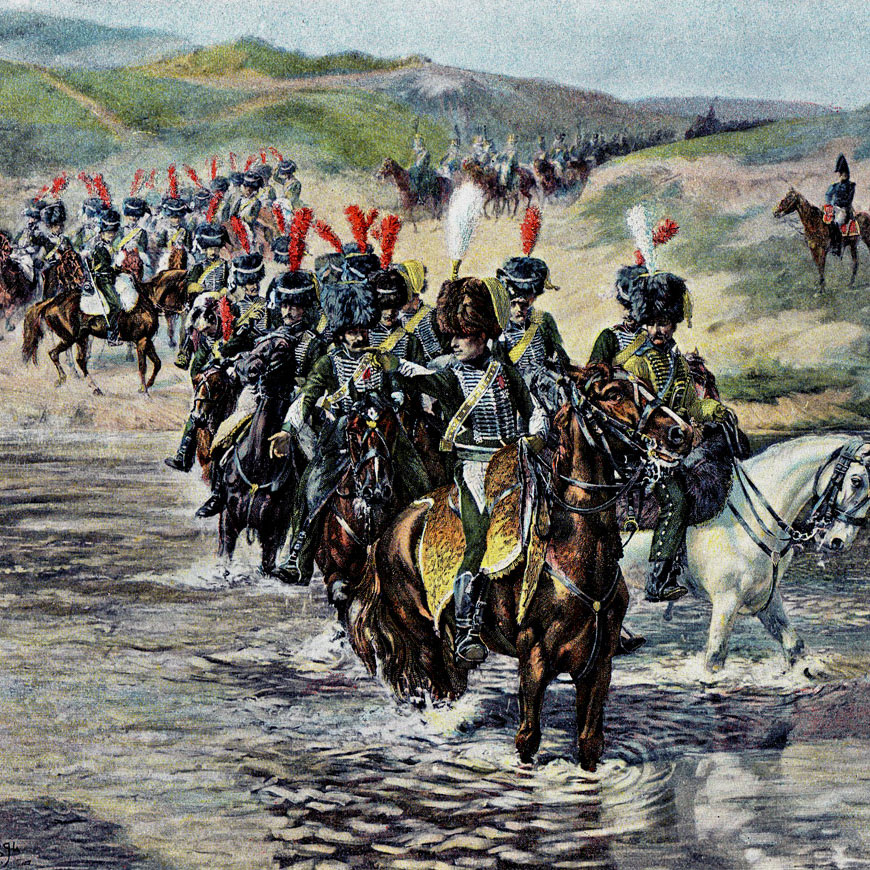
Podcast of The Battle of Benavente: The second cavalry battle, fought on 29th December 1808, establishing the early predominance of British cavalry over French in the Peninsular War: John Mackenzie’s Britishbattles.com podcast.
